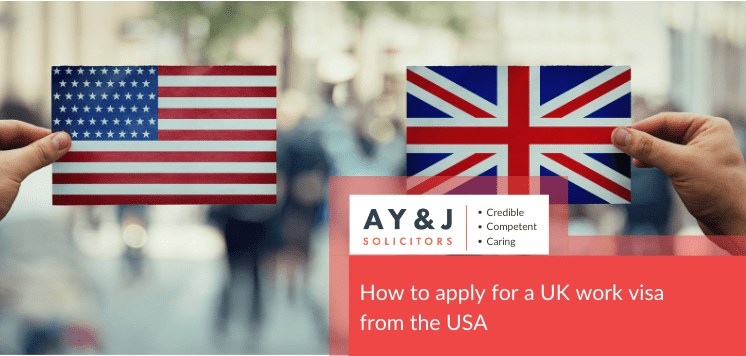Disclaimer: The information in this blog is accurate as of its publication date. Any updates after that date are not reflected here.
Introduction
On 15 March 2022, the Government laid out a Statement of Changes to the Immigration Rules. The various changes will come into effect in Spring and Summer this year.
Set against the backdrop of the Government’s long-standing policy aim to continue attracting the “brightest and best”, the changes are designed to support Britain’s businesses to recruit the best talent from around the globe.
April normally sees seasonal changes to the Immigration Rules, but this year we have been treated to a remarkable variety of key changes, including:
- The closure of some well-established business immigration routes (Sole Representative and Intra-Company Transfer routes); and
- The introduction of new business immigration visa routes (Global Business Mobility, High Potential Individual, Scale-Up).
We will outline and discuss the impact of the above new routes and the effect of the above route closures in detail in this blog.
Table of Contents
New Routes
Scale-Up Route
One of the most exciting updates is the introduction of the highly anticipated “Scale-Up” route. The Scale-Up route is designed to simulate recruitment of highly-skilled graduates from overseas to work for UK Scale-Up Companies who will need to first register with the Home Office as a licensed sponsor.
So why is this any different or better than the current Skilled Worker option, you might ask?
There are several reasons why this new route will be a viable “fast-track” option and be beneficial to many UK businesses.
Benefits to the Candidate
Firstly, although the candidate needs sponsorship to work under this visa, they will be able to work full time for any employer, in any job having been sponsored under the Scale-Up route for 6 months.
So, after only 6 months of being tied to one employer, the person will be free to work in the UK in a job of their choice.
In comparison, a Skilled Worker can only work for their sponsor (some supplementary employment is allowed, in limited circumstances) and needs to make a “change of employment application” to work for a different sponsor.
Benefits to the Employer
The employer’s sponsorship responsibilities end after they have sponsored the employee for 6 months, in comparison, Skilled Worker sponsors, are obliged to comply with their sponsor duties throughout the period of sponsorship, including ongoing record keeping and monitoring of the sponsored worker. Scale-Up sponsors will be “free” from sponsorship duties after 6 months of employing the person in line with the Scale-Up visa job offer.
What is a “Scale-Up”?
Companies with a high rate of growth can contribute better to the UK economy.
In this context, the term “scale-up” is not fluid. Only businesses that meet the official criteria can apply for a “Scale-Up” sponsor licence.
The definition of a scale-up is that used by the OECD.
- Must have annualised growth of at least 20% in the last 3 years (turnover and staffing)
- Must have at least 10 employees at the beginning of the period.
The most innovative companies will qualify, and this route will greatly help successful startups, particularly in the technology and fintech space.
Once registered as a Scale-Up sponsor, the business will be able to recruit key talent from overseas.
How can I apply for a Scale-Up licence?
You will need to make an application to the Home Office, using their specified online process.
The process is anticipated to be even more streamlined than the current process for applying under the “Worker” licence route, as, if and where the Home Office can effectively make cross-departmental checks with other agencies (such as HMRC) this will reduce the burden of documentation and evidence required.
What are the eligibility criteria for a Scale-Up visa?
The candidate must meet the following criteria to qualify for a Scale-Up visa:
- Have a job offer that is at graduate level (RQF level 6) or above;
- Be paid the appropriate salary for the role, as determined by the Home Office (£33,000 per annum, or the going rate for the job, whichever is higher).
The candidate will need to speak English at CEFR B1.
How long will my Scale-Up visa last?
The visa will be granted for 2 years.
The visa will be granted for 2 years.
To extend their visa, the applicant must have PAYE earnings of at least £33,00 per year, for at least half the time in the route. Any extension will be granted for 3 years.
To extend their visa, the applicant must have PAYE earnings of at least £33,00 per year, for at least half the time in the route. Any extension will be granted for 3 years.
Can I apply for Settlement under the Scale-Up route?
It will be possible to apply for settlement (indefinite leave to remain) after 5 years’ continuous residence. You will need to show at least £33,000 (PAYE) earnings in at least 2 years of the 3-year period immediately prior to your ILR application.
When can I apply?
The Scale-Up route will be open from 22 August 2022.
Global Business Mobility Routes
Another grand introduction is the new Global Mobility Route. These are routes for temporary business assignments. There are 5 Sub-Categories for sponsored employment under this category, as outlined here:
Senior or Specialist Worker
These are highly skilled overseas employees (usually managers and specialists) being transferred from overseas branches or linked entities to work for the UK company. This route replaces the Intra-Company Transfer visa route.
Graduate Trainee
These are skilled overseas employees being transferred from overseas branches or linked entities to work for the UK company on a placement, as part of a graduate training program (leading to a senior management or specialist role). This route replaces the Intra-Company Transfer (Graduate Trainee) visa route.
UK Expansion Worker
These are senior employees deployed by an overseas business to the UK to aid in expanding their UK presence. This route replaces the Sole Representative route and can only be used where the business has not started trading yet in the UK.
Service Supplier
These are contractual service suppliers delivering contracts in the UK, who are employed by an overseas service provider. Self-employed independent professionals based overseas can also use this route to carry out an assignment in the UK, provided the services are covered by one of the UK’s international trade commitments. This replaces provisions contained within the International Agreement route.
Secondment Worker
This is a new route for overseas workers undertaking temporary UK work assignments as part of a secondment agreement where the secondment is under a high-value contract or investment by the overseas employer.
When can I apply?
The Global Business Mobility Routes will be open from 11 April 2022.
It should be noted that these are routes for temporary migration and do not lead to settlement.
High Potential Individual (HPI) Visa
This new route was originally announced on March 2021, as part of the Government’s Plan for Growth. One of the ways the Government feel Britain can attract high-quality migration is by implementing “elite” visa routes, such as this.
The Benefit to the Candidate
Successful applicants can work full time in a job at any skill and pay level, so this is a truly flexible work visa, but on the downside, this route is not a route to settlement.
Who can apply?
To be eligible for this visa, the applicant must have a bachelor’s or postgraduate degree from a “top-ranking” overseas university, within the last 5 years before the date of the HPI application.
The list of “top-ranking” universities will be compiled annually by the Home Office, but the eligible overseas institutions would be ranked “top 50” in at least two of these international ranking systems:
- Times Higher Education World University Rankings
- Quacquarelli Symonds World University Rankings
- The Academic Ranking of World Universities.
The candidate will need to speak English at CEFR B1.
The candidate can sponsor dependents (partner and children under 18).
How long will my visa last?
The visa will be valid for 2 years for those relying on a Bachelor’s or Master’s qualification. PhD graduates will be granted a 3-year visa.
Again, the HPI visa is not a route to settlement.
When can I apply?
The HPI route will be open from 30 May 2022
Route closures
Whilst we are welcoming this variety of new options for work routes, we will be saying goodbye to some well-established visa routes that have, over the years, become very much used and relied upon by migrants and businesses alike.
While reading about the new Global Mobility Route above, you might have been wondering why these routes have been introduced, when we already have existing routes for Sole Representatives (senior employees being deployed to the UK to set up a branch of an overseas company) and Intra-Company Transfer migrants (including Graduate Trainees).
Well, sadly, we will be saying goodbye to both the Sole Representative Route and Intra-Company Transfer routes this year.
Sole Representative
The Sole Representative route will be closed for initial applications from 9 am 11 April 2022.
Those who have already applied for their visa before the cut-off date will have their applications considered under the rules in force before 11 April 2022.
Those who already have leave under the Sole Representative route can continue to live and work under their visa – they will be permitted to extend their visas and apply for settlement under the route (unlike UK Expansion Workers).
They can also continue to sponsor eligible dependents (spouse, children under 18) to join them.
Intra-Company Transfer
The Intra-Company Transfer route will be closed from 11 April 2022.
This change marks a full closure of the route and so visa holders will not be able to extend under the ICT route.
Companies that wish to transfer overseas staff for non-permanent positions, should use the new Global Mobility Senior or Specialist Worker route, or Graduate Trainee route, where applicable.
There had been some anticipation that the Home Office might make the ICT visa a route to settlement (or allow time spent on the ICT route to count towards the 5 year qualifying period for settlement) but such changes have not been incorporated into this April’s updates.
Those on ICT visas can continue to live and work on their current visa but will need to apply under alternative routes (either the Global Mobility Route or the Skilled worker route) should they wish to continue working for their employer beyond their visa expiry.
Conclusion
This year will see some impactful changes to the immigration rules, particularly for business immigration. When considering whether a new route is appropriate for you to apply under, it is always best to speak to an experienced immigration consultant, who can help deconstruct the requirements and ensure your application is viable. Your adviser can then support you, end-to-end with achieving a successful outcome.
A Y & J Solicitors have years of experience processing applications within the immigration rules and have always stayed on top of changes, applying their expertise to interpret and apply the ever-changing rules to achieve the right outcome.
You might be an employer looking to update your immigration policy and strategy, in line with the changes. You might be a candidate whose plans have been affected by the imminent closure of one of the routes.
Contact us if you would like assistance, whatever your requirements.









